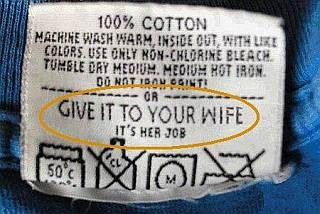What is today's top story online? Click here to decide.
Michael Arrington, a popular blogger on new Internet businesses ( www.techcrunch.com), caused a stir last month when he said Digg ( www.digg.com) looked as though it was close to equaling The New York Times in one measure of online readership. "Digg is looking more and more like the newspaper of the Web," Mr. Arrington concluded in a post on his popular blog. According to Alexa.com, which tracks Web traffic, the news-aggregating site begun in late 2004 also has more online traffic than The Washington Post, the Los Angeles Times, The Wall Street Journal, or USA Today.
More traffic does not equal quality -
digg is becoming a site where the "Wisdom of the Herd" has become commonplace - it reminds me of USENET circa 1990-1994 - flame wars, insults and cliques.
Try watching the "upcoming" stories sometime - why does somebody come online and then digg umpteen stories within seconds? Surely that person hasn't actually
read those stories?
What is happening here to skew the news?
Well the demographic profile is one - people like "dirtyfratboy" on digg have a
lot of time to spare - indicating that they are either retired - or well - a dirtyfratboy who finds digg more appealing that studying . Who knows?
The "Wisdom of the Herd is another factor that skews the choice of news - currently diggers try and create an imaginary hierarchy, a popularity contest which is determined solely by the number of posts, comments and votes submitted - rather than acting like real editors, submitting, voting and commenting on things they might actually be interested in.
This populist approach to news means the only news you will ever get digg from has almost certainly been chosen by tech-obsessed 14-25 year old males - which is exactly the demographic which digg can make money from.
It is not for nothing that there are three Google Ads above the fold ...
But my problem isn't really with digg as such - it is only tapping into the new craze.
My problem is with this whole "Wisdom of the Crowd" thing.
It looks at the "crowd" as though they had some God-like oversight that guarantees the delivery of content which is both timely and interesting - but they don't - they only know what is popular for them.
Using the "Wisdom of the Herd" can lead to problems - look at the "Tulip Bubble", the "South Sea Bubble" and other follies of mass-delusion.
Look at the manipulation of the "Wisdom of the Herd" by Fascists such as Hitler and Communists such as Stalin.
Look at the manipulation of the "Wisdom of the Herd" by MSM, spin doctors and religious leaders all over the world.
Another problem with digg is that there are so many duplicates, old stories and lame bits of rubbish promoted on digg, that I despair of the front page sometimes. Is this really what passes for "news"?
Or have these people got collective amnesia? Didn't I read that last week, last month, last year or sometime back in the 70's ..
Sites like digg - which rely on the "Wisdom of the Herd" - fall foul of
power law distributions in their curves - and are actually making it even harder to explore
The Long Tail of news.
On digg the "Long Tail of News" doesn't exist - it gets buried or ignored.
Even now digg has no place for
Extreme Sports News - not even under entertainment.
The reason why digg clones such as
Pligg and
CrispyNews are so popular is that people can set up "digg-style" sites that explore the news that
they are interested in - rather than try and submit it to digg and have it disappear because either there is no suitable category or it doesn't appeal to the digg demographic spread..
In short digg is
not delivering the goods for me - yet I have identified the problem not with digg itself - but with the "Wisdom of the Herd" - the idea that if everyone votes on the news we will end up with a "newspaper" "by the people, for the people".
What we actually end up with is actually the 99% of rubbish which is popular with a narrow demographic - a bit like old mainstream media really ...
Tags: digg, wisdom of the crowd, wisdom of the herd, long tail, news aggregation, social networking





